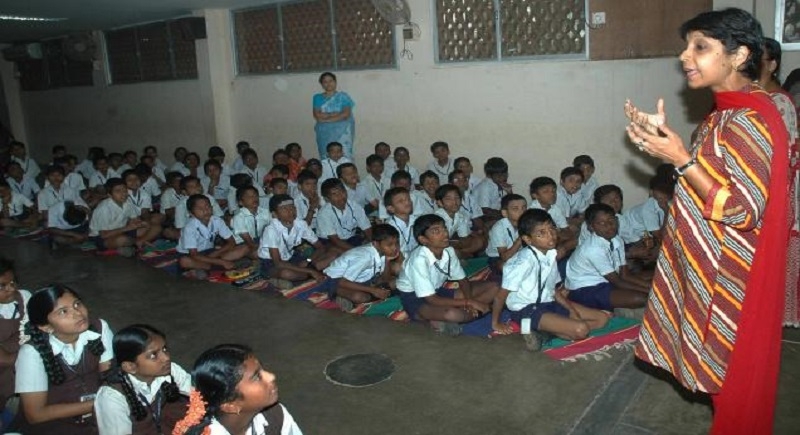School Teachers’ Status and Morale are Important Parameters to Ensure Good Schooling for our Children

There are indications that the Government is engaged in a process of ushering in reforms in our schooling system. In this context attention is drawn to certain facts. The school teachers in India have a barely respectable salary only in Government schools. This is true of schools run by both Central and State Governments. But vast majority of the teachers are employed in private schools and they have abysmally low salaries.
Even in reputed English-medium schools ‒ these have acquired higher status in society because of patronage from the rich ‒ a teacher of secondary level is paid between Rs.10,000 and Rs.15, 000 per month. A teacher of primary level is paid even lower. A lower middle class nuclear family of average size requires at least Rs. 30,000 per month to make ends meet. In vernacular medium schools the salary is even lower. Often the employer pays salary in cash and forces the teacher to give a receipt for a much higher amount, and thereby generate black income. Often the salary is given after much delay and postponement.
As a result the teachers, particularly the male ones, are forced to do private tuition and neglect school work. Low teacher salary and private tuition are major causes of very low academic standard of our schools. Survey after survey are aired in TV channels and published in newspapers exposing the abysmally low performance of the school pupils across the country.
The syllabuses under CBSE, ICSE and various State Boards are ambitious and heavy through all levels from primary to higher secondary. Hence, teachers who can teach well must themselves have been good students in their earlier years; otherwise they cannot master the syllabus. Now why should a good student be motivated to teach in a school for such a low salary? He is conscious of the fact that if he chooses to be a school teacher, he would not afford good schooling for his own children.
CONSEQUENCES: Consequently, a majority of the teachers in private schools are women. Generally speaking, their husbands are the main earners, and they are basically housewives who are quite happy with their small supplementary income. But someone, who is looking only for a secondary income, cannot be expected to be serious about one’s profession.
There are, of course, exceptions to this rule, where a teacher is a housewife and yet devoted to her job, not for the money but for the love of it. There are also women teachers who are spinsters or widows, and quite serious about their jobs because they aspire for promotion, higher salary and financial stability. However, their number is few.
Generally speaking, we end up filling our schools with mediocre and unmotivated teachers. Moreover, in Indian society the man of the family is necessarily cast in the role of the bread-earner and hence, no one wants to give his daughter in marriage to a male school teacher. Even a lower middle class man does not want a school-teacher son-in-law. Even a female school teacher does not want to marry a male teacher of a private school.
A society that accords such low status to its school teachers does not deserve to have good schooling for its children. In ancient India the teacher of a Gurukul was one of the most respected persons in society. These days people sneer at school teachers in any social gathering.
Since the year 2016 the Central and different State governments are taking a fresh look at our schooling system. As per the recent announcement of our Minister of Human Resources Development, it seems they are revising the syllabus, bringing back detention at lower levels, regulating school fees of private schools and generally considering various other improvements such as improving teacher-student ratio.
They must also look at teacher morale from a sociological angle. The teacher’s salary should at least be commensurate with the lower-middle class status. We must make a teacher’s career attractive to men and women of talent, and rescue it from being an income supplement of the housewife.
CONCLUSION: In the light of the discourse above, the following recommendations are made for the Government:
[1] To regulate the salary of teachers by an act of parliament and create a regulator a la the University Grants Commission which regulates teachers’ salary of both public and private colleges.
[2] To compel the school management to pay salary directly into the bank account of the teacher and issue an income certificate at the end of the Financial Year. A beneficent side effect would be to prevent ‘black income’ generation by school management.
[3] To make the salary of private school teachers equal to that of the Government school teachers. Government schools would still be much more attractive because of the following two reasons:
(a) Much lower work load and,
(b) Much greater job security.
These two things cannot be enforced in private schools. The Government should at least bring the salaries of private schools at par with Government schools. Otherwise the schools would continue to turn out sub-standard pass outs, and all Government efforts at skill development would fail. In the long run if the present state in our schools persists, we face a terrible future as a nation.
